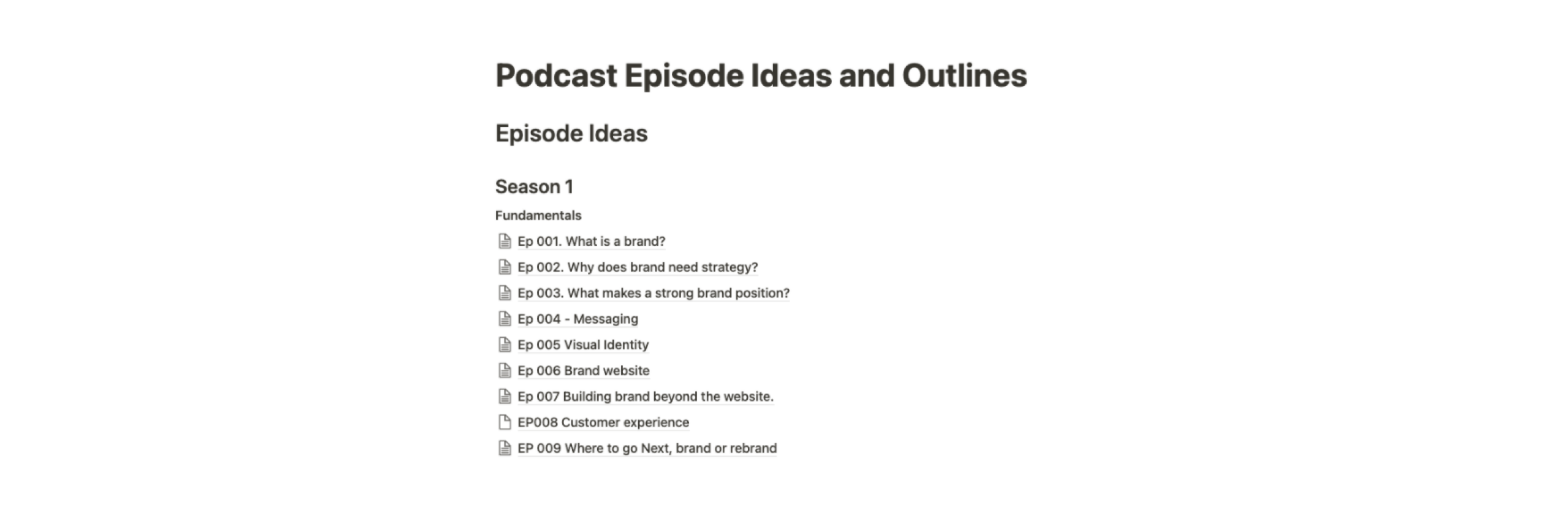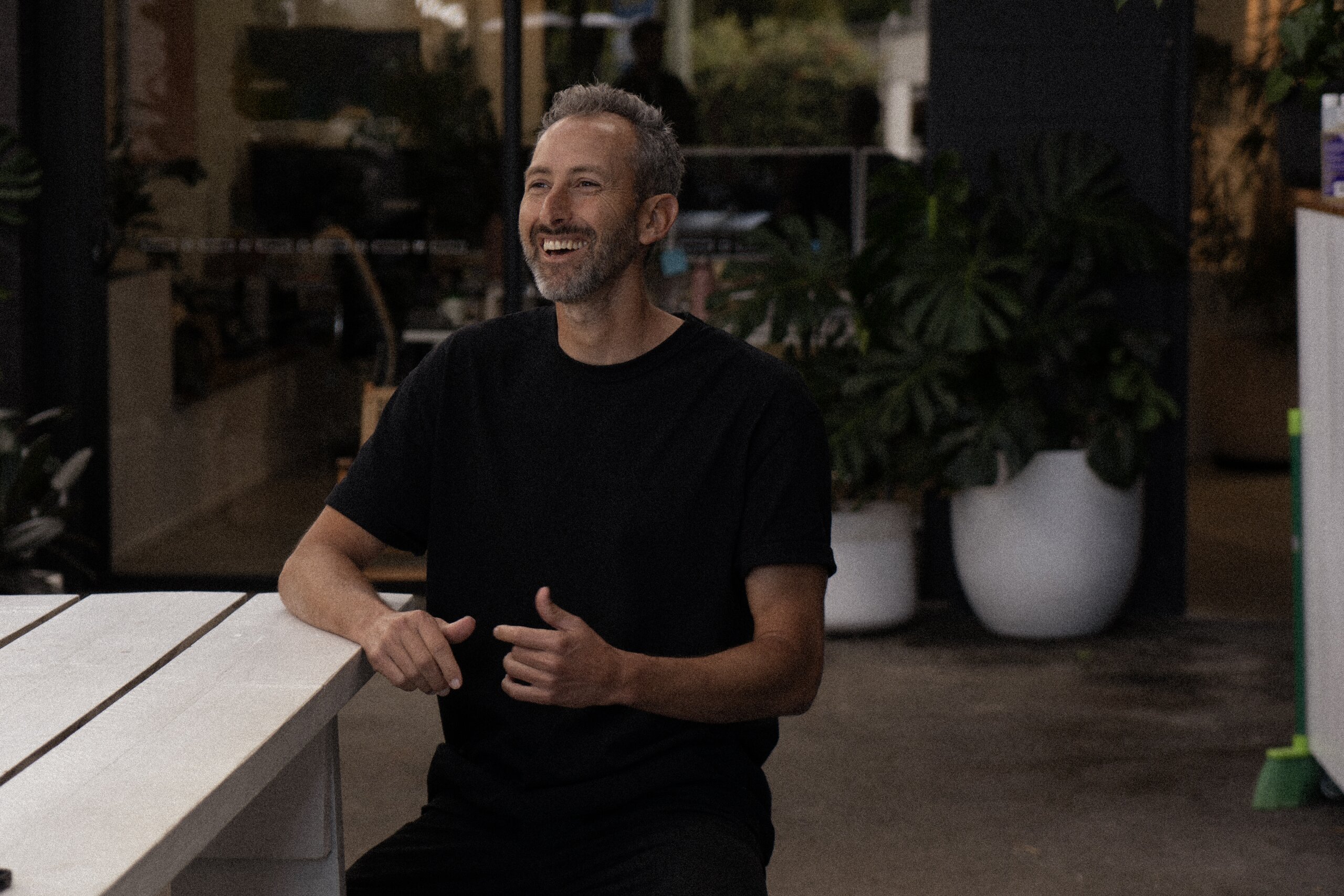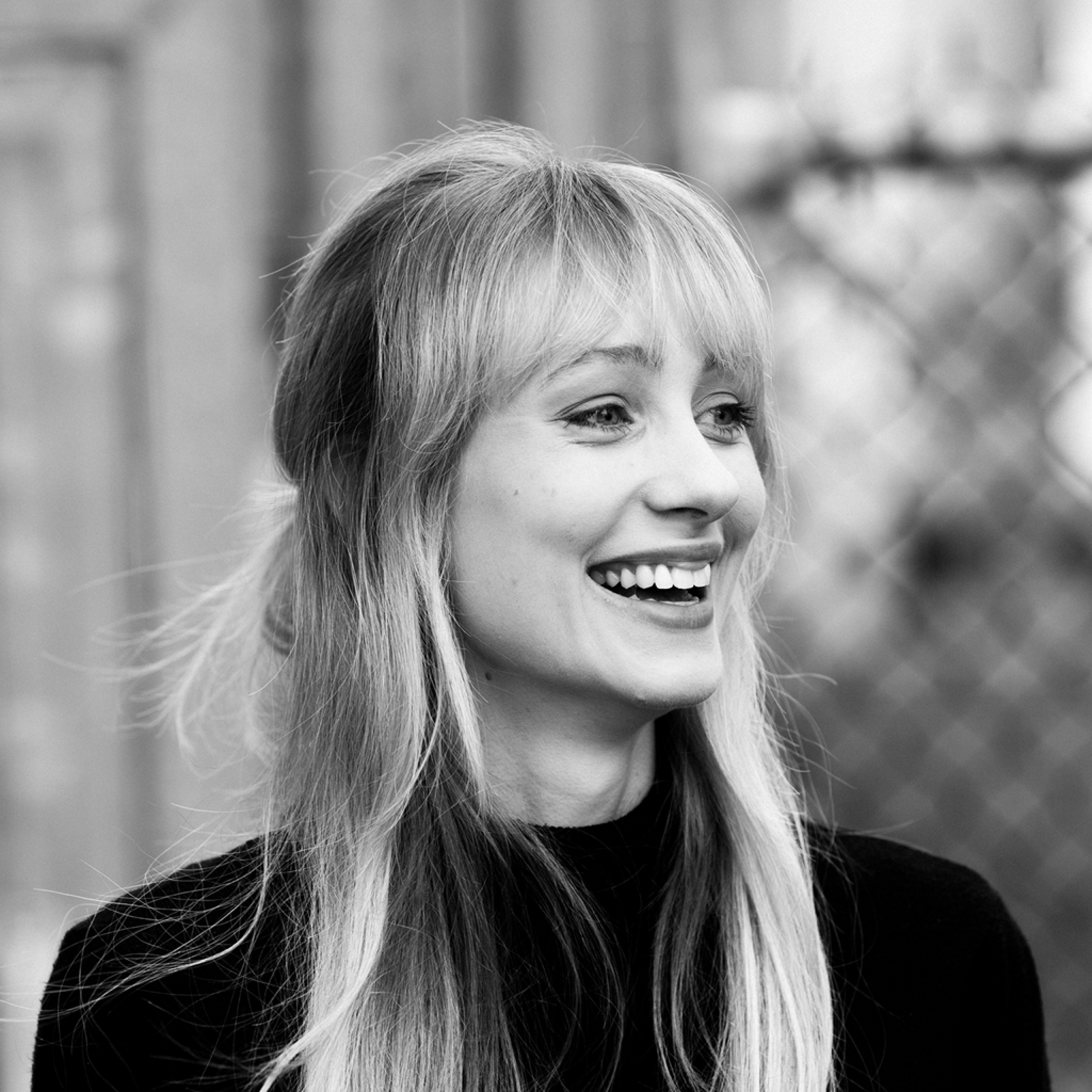My wingman Mark and I are constantly locked in conversations about the work we do and how we can push it further and better. D&M's often end with us lamenting about how we should have laid that chat down on a podcast for prosperity.
Two years back we stop threatening and actually pulled our finger out to start a podcast called Layers - which is a conversation about building brands with more depth. We thought that our freestyle would naturally translate into podcast rainbows, well.. wrong. Not at first anyway. Like any new skill, it takes a learning curve and a bit of dedication to make it work.
In this post I'm going to break it down and explore a few things on your behalf like;
Should I start a podcast?
Is a podcast going to help or hurt my brand?
Planning behind a podcast, the checklist for success
Record day. Tips for winning
Do your have enough to talk about (and how will it progress)
Like most things that are worth doing, a podcast takes work to make it happen and it's a long burn activity. So let's dig in and see if it's for you;
To cast or to stay silent
The first thing you really need to decide is if you should podcast at all. Being good at shooting the shit with your buddy at lunch on work riffs is one thing (like we discovered) but being able to put out content that your audience will want to listen to, is a whole other beast. The important question to ask yourself is this: do you have something of value to say. For your pod to have half a chance of getting a listen you need to be able to satisfy one of the following styles;
You are opinionated, maybe even a little controversial; or
You are insightful and have a very deep understanding of your subject matter; or
You are good at getting others to talk, asking clever, well research questions; or
You have a new angle on your content, a fresh voice to be heard
Don't worry if the honesty pill means podcasting isn't a fit. There's a tonne of other mediums you can use to get your message across. But also don't rule out using someone else in your company that's maybe better matched to hosting a podcast, not all founders or CEOs want to get the headphones on!
Hurt or help my brand?
Once you've decided that podcasting suits you (as a person) you've then gotta figure out the next piece of the puzzle - will a podcast be helpful or hurtful to my brand? Maybe you think doing something is better than doing nothing, but tread carefully because it's possible for all ill conceived podcast to bite you in the A.
Helpful
Content that solves a customer problem or;
Brings new unearthed ideas or insights
Interesting listening material relevant or at least adjacent to your brand
Content that extends your brand and focuses on above average production (from naming to editing the podcast) as a minimum
Hurtful
Rambling content with no real point
Shitty production that brings a whiff of cheap
Content that is completely off brand or misaligned
Content that lacks difference, diversity or doesn't add value
Planning behind a podcast, the checklist for success
I wishfully thought that our podcast would be a rather simple affair. A couple of mics, two blokes and pressing record should be about the effort level I thought. The further I dug into it, the more I realised what really needed to be done to make our podcast passable. I don't want to scare you off with overblowing effort - you can really plug in two yetis and get to it - but I'd recommend a bit more thought than that;
You need a name. A show name can make your pod more memorable and give it a certain flavour that's right for your listening audience. Don't worry if you land on a name that's similar to others just make sure you don't operate in the same category.
Brand it. A podcast needs its own identity and brand mark. Why? Because there's a tonne of podcasts out there and it's important to stand out and attract listeners from all walks of life.
Landing page. Consider building a landing page to house your podcast because it will give you full control over the look and feel of the show and allows you to add show notes or long form content (like transcriptions) and it's also super handy for SEO and being found.
Podcast players. One of the bigger jobs to do is get setup on the various podcast platforms. We used Soundcloud because that helped us syndicate our podcast to other players quite easily.
Production team. There's a few phases to production of a podcast, which I'll go into more detail below but you'll need to think about who will help you record on the day and once that recording has been captured, who will master the audio for you (cleaning up noises, adding intro and outro's etc)
Plan your topics like a pro
Before we got to the business of recording our podcasts, we held several thinking sessions to plan out our content and these turned out to be the best thing we did. The other thing we covered in our planning session was how to progress the podcast over seasons.

Think in seasons. It's a little bit daunting thinking about how many topics your have to cover, how often you'll record and how long your podcast will run for. Here's a pro tip - think in seasons because it's less daunting and it's also smart from a planning perspective. We figured out after our content planning sessions that we had about 24 really solid topics we could talk on - so we ended up with three seasons and 8 pods per season. That allowed us to have breaks in between seasons but it also highlighted we only had three seasons of content.
Figure out how to evolve your podcast. It does seem like a planning overload to go far out into the distant future but it's not a bad exercise to work out if you have enough material and if you don't, where you can evolve your cast too? In our case, season 4 will be about interviewing brands that we admire, reducing the reliance on finding more topics and shaking things up with a few new voices and perspectives.
Okay, so to the planning workshops here's what we did;
Workshop 1
In our first workshop for the podcast planning, we focussed on the more obvious front of mind topics we wanted to cover. Most of the topics were based on the lived experience of working on creative projects for the past decade;
Get a few creative thinkers in a room for a few hours, switch the phones off and go deep
Talk in stories to get the ball rolling, rather than dot point topics. Like 'remember that time when Pete got shouted out of the room by that crazy client'. You naturally stumble into rich content territory talking about past projects or things that happened
We then asked ourselves, what are we really opinionated about? And that brought on a lot of convo about how you should do something (like a rebrand) or the f'ups that happen - both angles provide super rich topic territory
And finally we riffed on how we do things (process) and also 'the future' ...more aspirational ideas (for example how brands might evolve in the future Vs how they do it now)
We didn't consider interview questions because our podcast is more about two hosts chatting about shop but if you do plan on doing an interview style, I'd recommend going deep on questioning techniques that help loosen up the interviewee and prep questions that are maybe a bit left field or unexpected so that you drive some really interesting answers.
Workshop 2
For our next session, we came around the other way and started thinking about all the problems customers come to us with and this yielded way more content ideas. This is more engineered approach of working back from problem to > solution and > finally wrapping that into a topic
We talked about projects that were similar and if the characteristics of the work shared common ground and if so what were they
In addition we covered the challenges we are often faced with at the start of the project and then how we came at those problems, writing down as many topic ideas as we could
We also covered perceived challenges Vs the real issue at hand. Like 'our brand is old and we need to update it' Vs the real truth: 'we're losing marketing share and we need do something'.
So stick aside a few half day sessions and go really deep on topic planning to make sure you've got enough content to cover you for at least a few seasons and a game plan to evolve your podcast to keep it from going stale in cupboard.
Recording day. Tips for winning
After a couple of sketchy podcasts, Mark and I started to twig to the idea that some content prep would be helpful to the overall results. That looked like us both deciding on the next topic and then going away and planning out what we were going to cover without knowing what the other would talk about it. The other thing we did was to have a 5 min chat about the topic and if we could easily fill 5 mins of riff, we knew we had a topic (and if we didn't, we sack the idea). That gave us some talking points, but enough room to freeform chats so that the convo didn't sound too planned out or contrived. I'll go into topic planning a little further down, read on friends.
It's not just the content that needed planning though, so here's a bit of run down of our process and a simple checklist;
Topic notes for each host ready to rumble
Phones & laptops charged
Setup camera tripods
Setup mics and sound check
Test camera's
Setup backdrop and host set
Turn all phones on silent
Put up 'recording' note on studio door
Here's a few tips to make the podcast recording sesh go really well;
Let the hosts riff for a bit before your start recording or better still hit record and then just muck around for a bit to get the jitters out
Make sure each episode has the host do a proper intro to the topic, hinting at the problem and some of the ground that will be covered - the first 45 seconds is pretty crucial for hooking in the audience
Pay super close attention to things like noisey airconditioners or other sounds like rainfall because they are really hard to master out of the recording in post production. We got so OCD about recording sounds that we'd sit in a sweltering room (because the aircon was too noisey) to get our content down!
Don't worry about kook ups or lost trains of thoughts - just keep rolling and edit it out later. We had a few little boo boo's and these rattled us a bit but once we were in the swing, we'd just keep going and you can't tell in the edited version.
The gear & the setup
I thought about giving you our exact gear list for the layers podcast but I think it's better to do your own research and find the gear that will suit your situation. Here's some general tips on gear and setup;
It's a podcast and it needs good sound. You need to spend at least $250 as a baseline on a mic and head north from there, don't use anything cheap.
Think about where you'll position your mics. Will you hold it, sit it on a table/desk or will you need a boom arm to suspend it. What will work for you?
Have a dedicated laptop to record the podcast, pretty much anything will do here.
If you are going to dual record on video (which I highly recommend) use some decent gear. We used iphones but I'd recommend going to a dedicated camera setup using DSLR to lift the quality and also think about angles. If there's two people if shot, running two camera's is good, using 3 angles is even better.
Lighting is important too and a lighting rig is pretty economical these days, so do your homework and get a few LED lights as a starting point
Finally, think about the 'set'. You might decide to always record in different locations, in which case just pick an interesting background. In the instance where you always record in the same room, you might want to think about getting a cool little set going. With a backdrop, a few hanging lights or plants coupled with an object, you've got yourself a pro setup.
There's some pretty good upsides to running a podcast and with a bit of work, there's a decent content payoff. We were able to get about 30-40 minutes of content in each podcast that we then turned into micro content (short snippets of video on the best bits) which we used in socials and also we've recently been folding the longer form podcasts back into our services stack.
It seems though the big win out of this for the Ply brand is that we're in a different light with new customers (as well as older clients) for a couple fo reasons;
New customers feel like they know Mark and I a bit better before meeting us via the podcast. Our personalities come through (that's either going to align a customer or maybe decide we're not for them).
We go super deep on things like 'brand consistency' in the podcast and that helps customers understand our views and experience on each topics, building trust before they meet in person.
So think about the right person to host your podcast and make sure your podcast aligns to your brand values. If it does, do your homework on gear and roll the sleeves up on topic and content prep and finally, be consistent and lean into the process. Happy casting.
Curious to see our outcomes?
Check out the full Layers podcast below.

